Graham Reid | | 2 min read
Bottle is Discovered
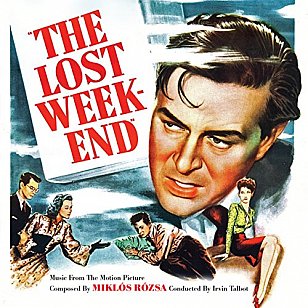
The Hungarian-born composer Miklos Rozsa -- who died in '95 -- has a rare accolade in his long career as a composer of film soundtracks: when his music for the Hitchcock film Spellbound won an Oscar, he beat out two other scores, both of which he had also written.
Those two were the music for A Song to Remember (about Chopin) and The Lost Weekend (about an alcoholic).
For both Spellbound (which Hitchcock hated because he felt the score overwhelmed the images, one eerie dream sequence conceived by Salvador Dali) and The Lost Weekend, Rozsa used the theremin to often scary and disconcerting effect.
Some accused him of repeating himself -- both films have unnerving themes -- but either way, he was a pioneer in the use of electronics in film scores. (The first fully electronic score was for Forbidden Planet over a decade later, by Bebe and Louis Barron).
Miklos Rozsa had a remarkably successful career in Hollywood after writing and performing in Europe, and he was there for that era where music played right throughout a film.
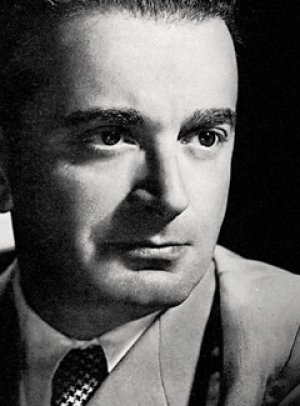 Among his credits were Thief of Baghdad, Jungle Book, Double Indemnity, sword and sandal blockbusters (Quo Vadis, Ben Hur, King of Kings, all with religious themes), The Golden Voyage of Sinbad and many more.
Among his credits were Thief of Baghdad, Jungle Book, Double Indemnity, sword and sandal blockbusters (Quo Vadis, Ben Hur, King of Kings, all with religious themes), The Golden Voyage of Sinbad and many more.
But his downright terrifying music for The Lost Weekend stands apart even now.
That theremin is very disconcerting as the alcoholic writer (played by Ray Milland) goes on his benders, has the DTs (the hospital scene is white-knuckle stuff) and finds redemption.
It was quite some long weekend.
Rozsa's score parallels all this with dramatic descending string passages, slow tension (the five minute sequence The Alcoholic Ward/Night Alcoholic Ward and The Elevated), repeated phrases which just get beneath the skin and piercingly high violin which sometimes makes you want to clap your hands over your ears.
The titles of the sequences tell the story and evoke the moods: Broken Date and Hidden Bottle, Frustration, Bottle is Discovered, Dawn/Nightmare, The Rainy Day, Suicide Attempt . . .
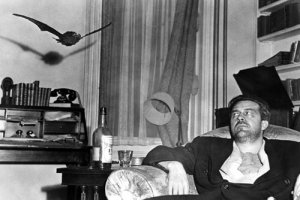 There was an urban rumour -- which I dutifuly passed on here -- that the music was banned by (or more correctly perhaps, not played on) some radio stations because it caused people to get depressed.
There was an urban rumour -- which I dutifuly passed on here -- that the music was banned by (or more correctly perhaps, not played on) some radio stations because it caused people to get depressed.
That sounds plausible, and alcoholics certainly shouldn't play it alone, late at night with a bottle in front of them.
And certainly not when the impossibly high violins come stabbing and the theremin sounds like the haunted spirit of a deceased soprano.
The opening Prelude might start like some archetypal Forties drama but it doesn't take too long for you to be dragged into some scary places by Rozsa's extraordinary score.
Rozsa's music for the writer's suicide attempt initially makes it seem like a sweet release and, given all the aural horror and disconcerting theremin passages which precede it, not many will make it through to Long Finale.
But wait, there is more . . . because some CD reissues add in alternate takes.
Welcome to the uneasy listening hour. If you are up for it, this soundtrack is at Spotify here.
Cheers.
.
These Essential Elsewhere pages deliberately point to albums which you might not have thought of, or have even heard . . . Dive in.
.
.

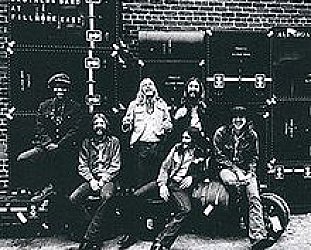
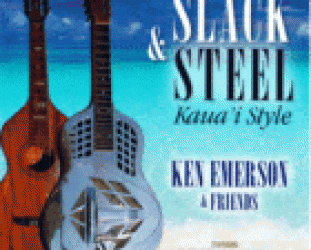
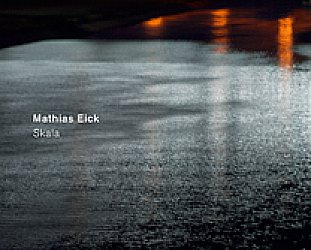
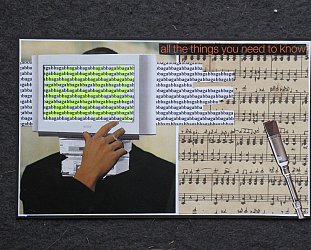
post a comment